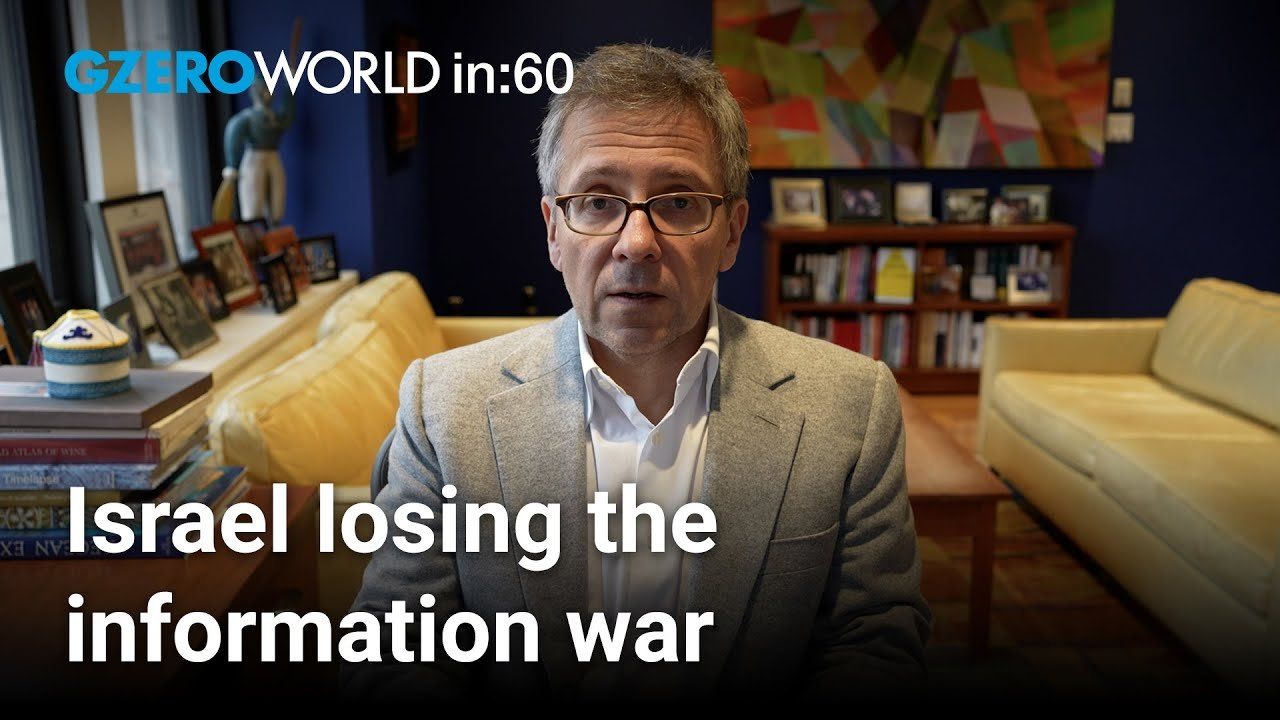Ian Bremmer shares his insights on global politics this week on World In :60.
Is Netanyahu losing the PR battle amid public outrage over the IDF strike killing seven aid workers?
I think Israel is losing the information war around the world, not just with the Global South, which was certainly true a few months ago, but increasingly even with Israel's closest allies. I'm hearing from the Germans, from the French, you know, from the Canadians, from the United States, that there is really a lot of upset with the unwillingness to take far greater care about civilian casualties while the Israelis are engaging in massive airstrikes still across Gaza. And of course, especially if we see strikes into Rafah, where well over a million Palestinians are trying to shelter. It's a big problem for the Israelis. It's a big problem for Netanyahu, but no end in sight, right now. And the potential for the war to escalate continues to be very, very real.
What's needed to garner bipartisan support for Speaker Mike Johnson's bill for increased Ukraine aid?
We have bipartisan support. There is overwhelming majority support among Democrats and Republicans to pass aid for Ukraine, likely 60 billion. Could be structured as a loan. Doesn't really matter. It’s not like anyone believes the Ukrainians will be in a position to pay it off any time soon. Makes it more palatable for Trump supporters who have heard the former president say, “not one more dime in direct foreign aid,” has to all be structured as loans in case we don't like them in the future, then they have to pay it back. What if they can't? Who knows? But anyway, that's the structure. The point is that the Ukrainians who have continued to be able to mostly hold their defensive lines, they've lost some territory recently, in part because they don't have enough troops on the ground. They are pushing through more mobilization, but also because they don't have enough artillery and ammunition, enough military equipment. And that is coming some from the Europeans, more soon from the Americans this month, I suspect the next couple of weeks that happens.
What's the significance of Turkey's recent local elections setback for President Erdogan's government?
It is the first time in a couple of decades since Erdogan took power that his party did not win. They didn't get a majority, and instead it was the opposition. And that's a big deal. Even those municipal elections. Look, it doesn't mean the end of Erdogan. He doesn't have to stand for presidential elections, no parliamentary elections until 2028. So it's quite a while. But it does show that elections matter in a country like Turkey as much as Erdogan would like them not to. And it is mostly about lack of comfort with his government's performance on the economy, a lot more pressure to perform adequately. And the mayor of Istanbul is an erstwhile serious challenger to the Turkish president. So, I mean, his ability to change the constitution and consolidate more power, his ability to ensure that his party is going to be in control after 2028 has just gone down quite a bit. And that means he has to be more careful, more cautious and more focused on performing on the economy for his own people.
More For You
Most Popular
Will AI change the balance of power in the world? At the 2026 World Economic Forum in Davos, Ian Bremmer addresses how artificial intelligence could redefine global politics, human behavior, and societal stability.
Ian Bremmer sits down with Finland’s President Alexander Stubb and the IMF’s Kristalina Georgieva on the sidelines of the World Economic Forum to discuss President Trump’s Greenland threats, the state of the global economy, and the future of the transatlantic relationship.
GZERO World heads to the World Economic Forum in Davos, where Ian Bremmer lookst at how President Trump’s second term is rattling Europe, reshaping both transatlantic relations and the global economy, with Finland’s President Alexander Stubb and the IMF’s Kristalina Georgieva.
